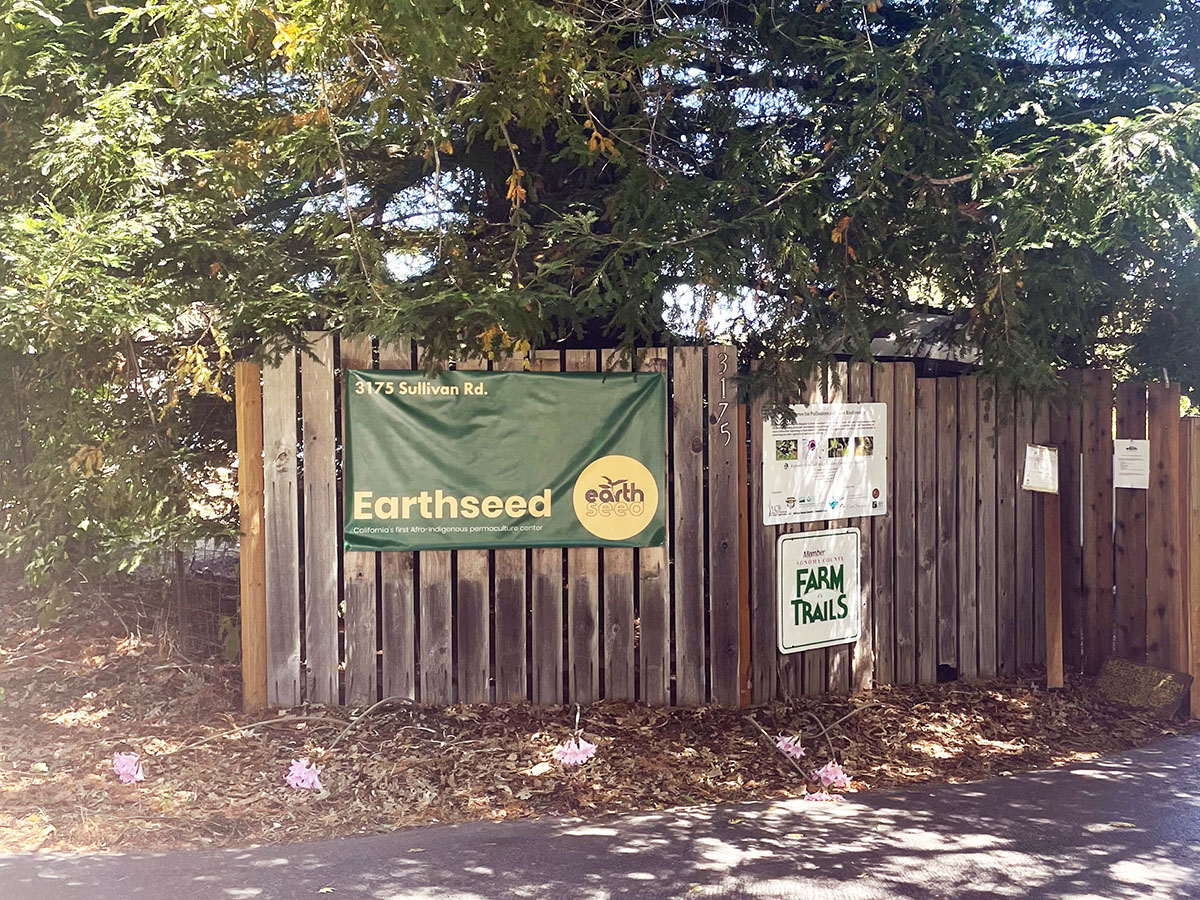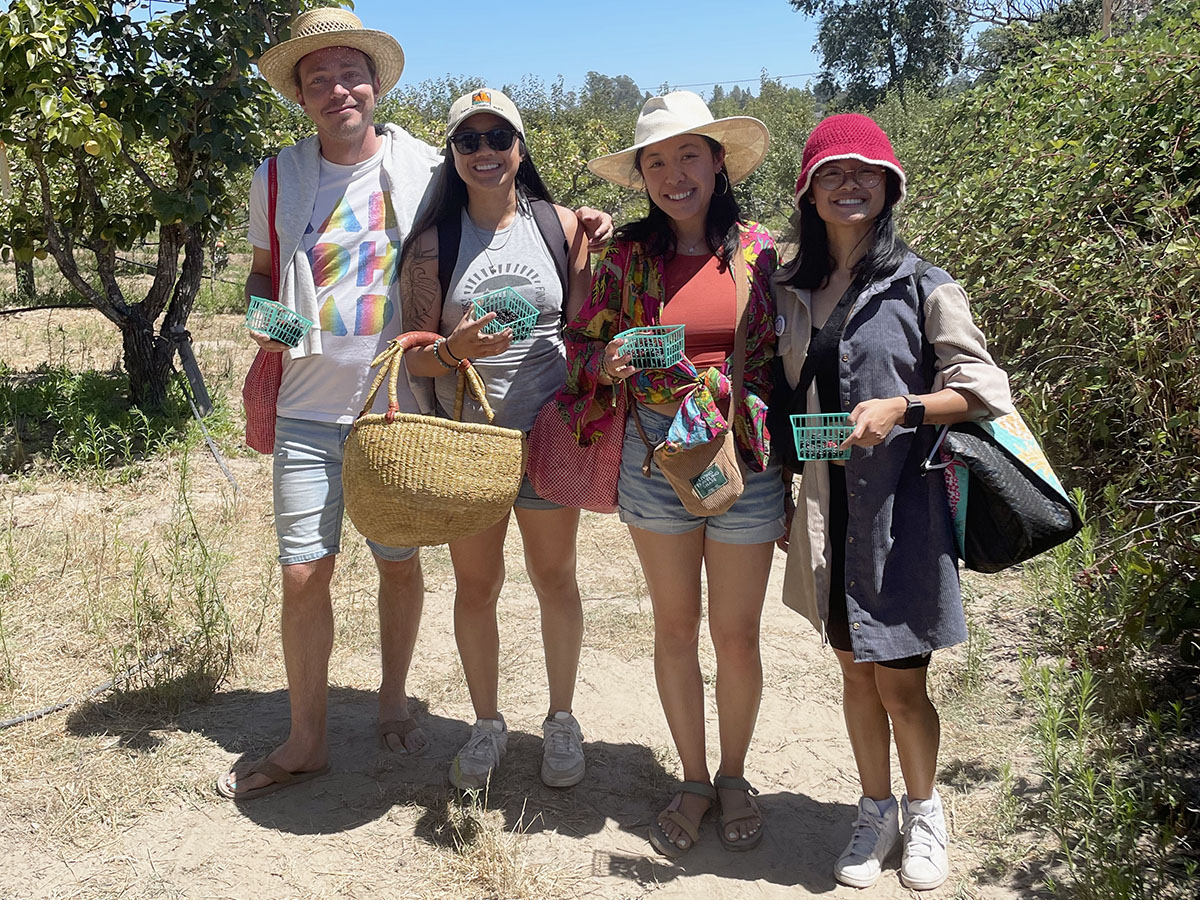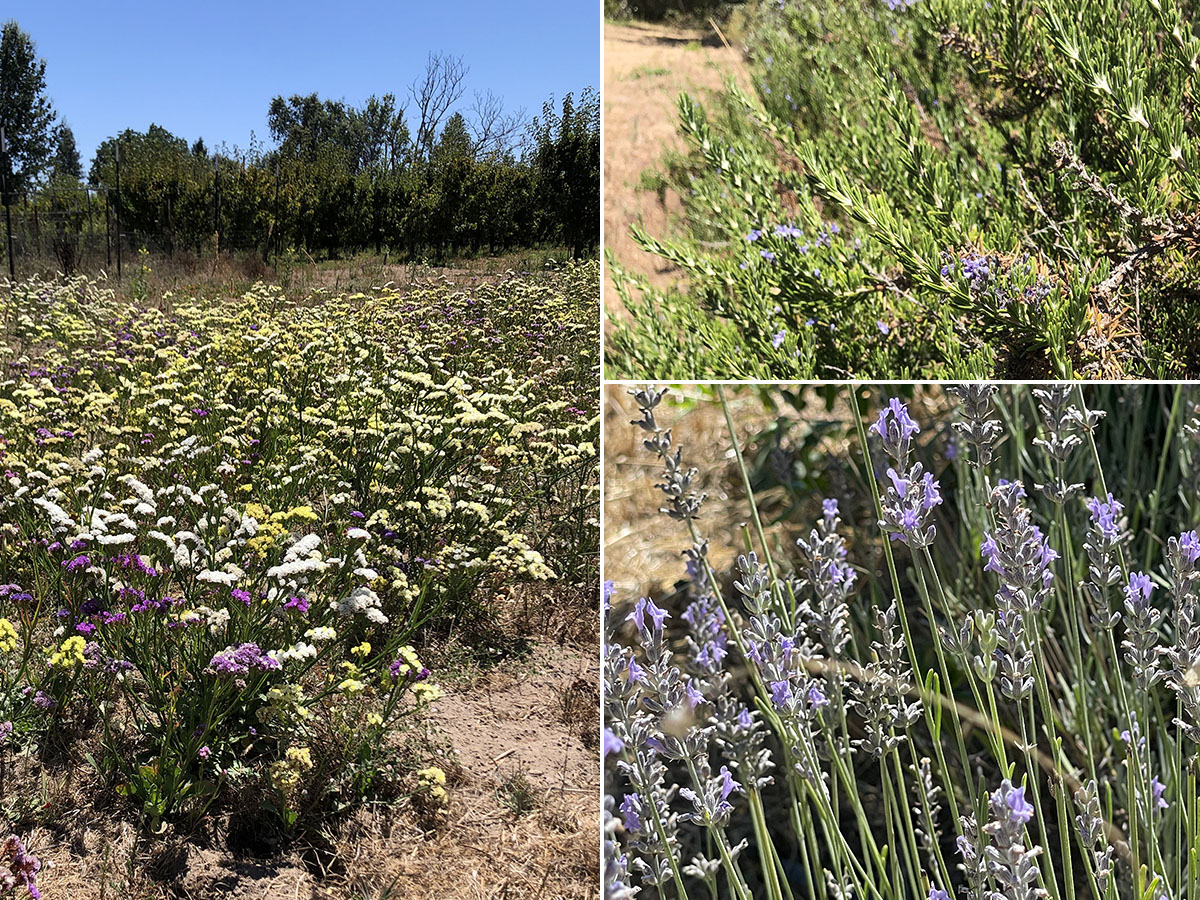Inspired by Octavia E. Butler, Pandora Thomas Grows Fruit and Community at EARTHseed Farm
As climate disasters dominate headlines, and rent hikes, state-sponsored violence, and union-busting billionaires fuel social inequalities, the premise of the Parable Series, sci-fi books by the beloved ancestor and New York Times best-selling writer Octavia E. Butler, can feel more like prophecy than speculative fiction.
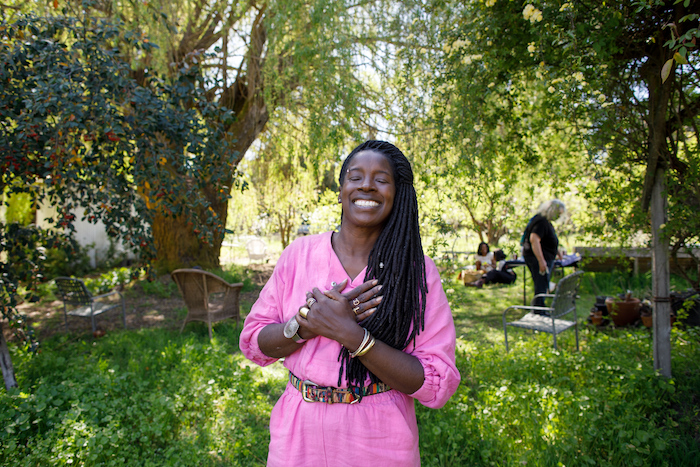
The staffers and activists that populate MSC’s ecosystem are “positively obsessed” with the series; and that includes Pandora Thomas — a former Climate Fellow with the People’s Climate Innovation Center. Thomas is the founder and land steward of EARTHseed Farm — a 14-acre solar-powered farm and orchard — the first Black-owned farm in Sonoma County. And, she named her farm after a religion that Butler created for said series of books.
Earthseed, as revealed in the series, is a religion based on the idea that “God is Change” and adaptation is crucial: all the seeds of all life on earth can be transplanted and, through adaptation, will grow in many different situations or places. The concept resonates in the world of transformative movement building:
All that you touch, you Change.
All that you Change Changes you.
The only lasting truth is Change.
– Octavia Butler, from the Parable of the Sower

All that is to say: when our core staff convened at our Oakland office this summer, it was a perfect opportunity to pay a visit to EARTHseed Farm. Like its namesake religion, the farm practices relationship-based design while reconnecting and evolving in its Afro-Indigenous principles and practices.
Butler’s character Lauren Oya Olamina’s commitment to spreading the message of Earthseed is not unlike Thomas’ goals for her farm. Thomas envisioned a place where Black and Indigenous communities can reclaim their relationship to the earth, their history, and the future. With the permission and blessings of the Graton Rancheria Tribe, a federation of Coast Miwok and Southern Pomo groups, Thomas, a passionate global citizen, established her Black-led and operated farm in March 2021. In addition, Thomas works as a caregiver for her mother and globally as a teacher, writer, designer, and speaker, and co-founded the Black Permaculture Network.
Located on the ancestral lands of Coast Miwok and Southern Pomo Peoples in California’s Sonoma County, the farm is an example of permaculture stewardship in action: an ecological design system embedded in Indigenous wisdom that elevates ecosystem health while meeting human needs. The rows of fruit trees and berry brambles — which are bordered with flowers and herbs for cutting and drying — are managed by a group of like-minded practitioners and sing with bees and butterflies. Crops include various apples and pears, persimmons, plums, pluots, guavas, and mixed berries.

Honoring ancestors and the land is integral to the EARTHseed Farm mission. Signs throughout the farm remind us that berries (and their thorns) are a self-protecting bunch; and that we should always pay our respects to the fruit we pick. Signs ask patrons to introduce themselves to the fruit, ask for its permission, and send appreciation for all it does for us.
EARTHseed sells produce wholesale and runs a popular U-pick program from May to November that is open to the public. During our visit, we ran into visitors like Janie, from the East Bay, who is a big fan of the Parable Series and brought her friends to pick fruit after discovering the farm in a Google search for Butler’s Earthseed concept. U-Pick Steward Lisbeth Paniagua walked the group through the farm, educating the guests on permaculture design while showing off the ripest fruits and berries.
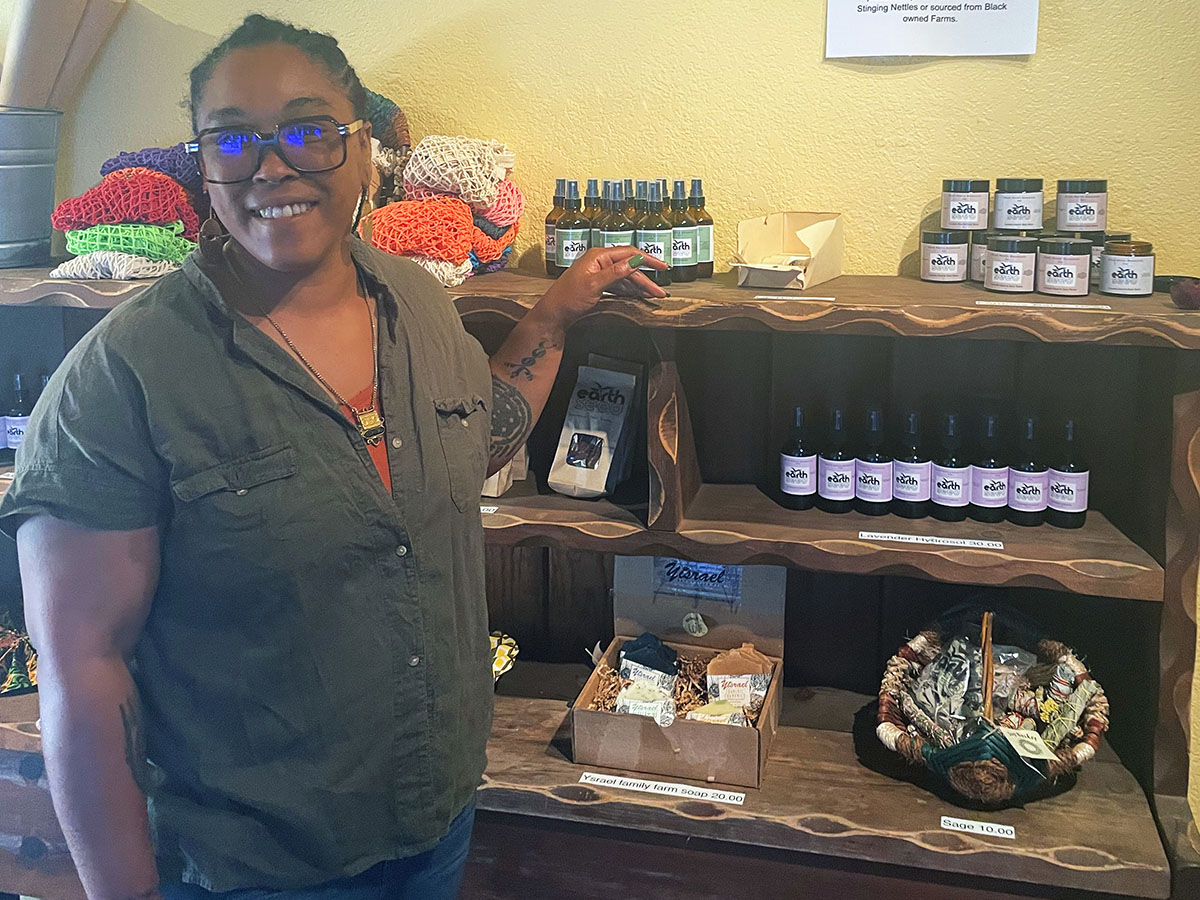
We also met Abi Huff, a.k.a. “Herb Diva,” the owner of the Stinging Nettle and director of Healing Clinic Collective — an MSC fiscally sponsored project — restocking the farm store shelves with herbal creams and insect repellents. She shared her warm memories of the Black to the Land Gatherings EARTHseed hosted last Spring to reconnect folks to the roots of Afro-Indigenous wisdom. Their first event was in partnership with CAFF and gathered BIPOC land stewards from the region. Huff told us what an incredible experience it was to arrive at the event and be greeted by so many beautiful Black and brown faces — in an area that isn’t famed for its diversity. She told us the series was a fantastic way to build and support the community.
Thomas has long been known for building relationships and sharing her ideology with neighbors across age, race, and economics — spreading ideas of resilience and self-determination. This particular Saturday morning as we entered the farm, we were greeted to the sounds of resident musicians, Leon and Kevin, who featured bluegrass tunes and traditional African instruments including the African Burkina Faso.

Later, we met Thomas’ neighbors from across the lane. They arrived bearing freshly cut flowers from their garden along with a note to the entire EARTHseed Farm family. We spent the next hour or so with the couple, walking the grounds, checking out the resident pigs, taking in the impressive solar panels, and attempting to identify the butterflies swarming otherworldly passion flowers studding a thicket of passionfruit vines. Thomas and her neighbors chatted like old friends — so it is no surprise that she has made quite a splash for herself within the tight-knit community along Sullivan Road in Sebastopol.
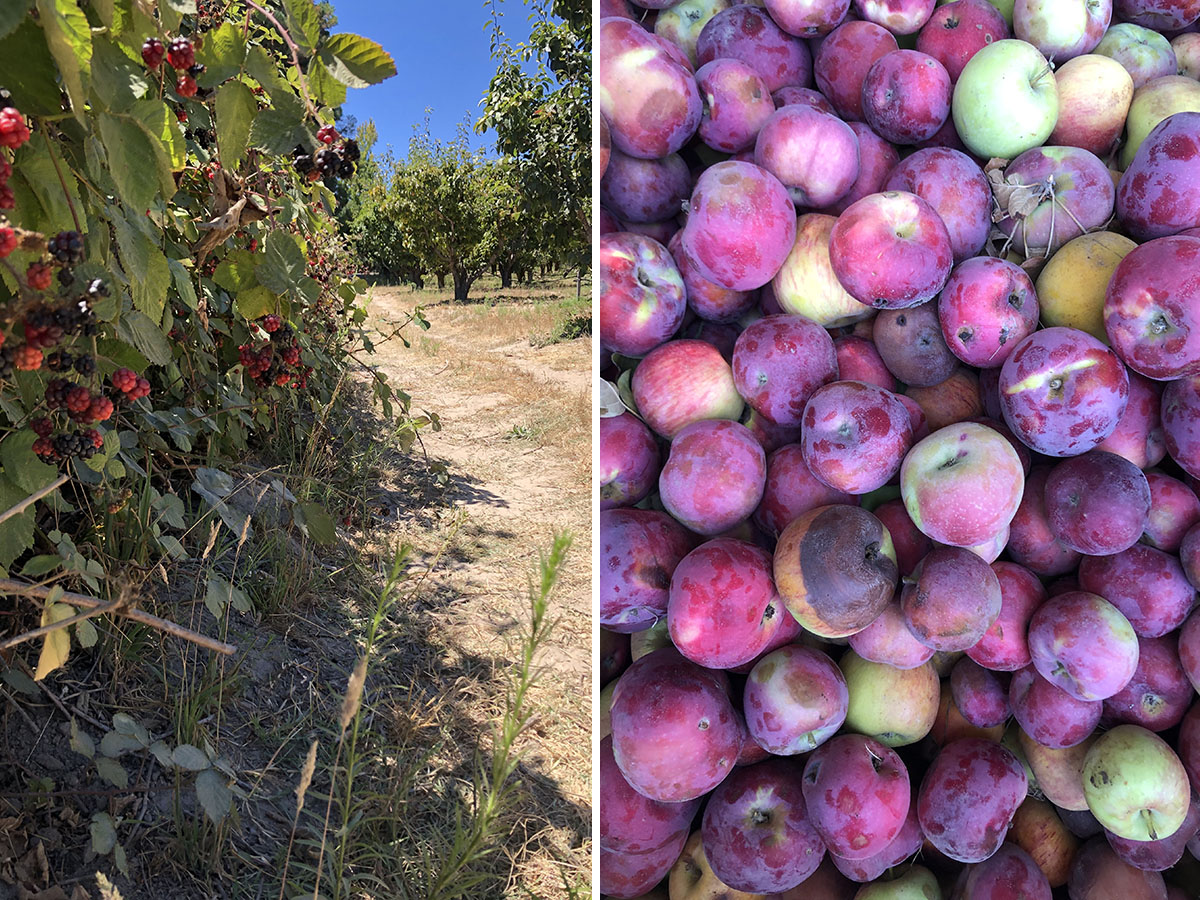
Visiting EARTHseed Farm was an inspiring treat and fed our imaginations. As communities work diligently to reverse historic harms and restore regenerative systems that honor our humanity, EARTHseed Farm is a place of solace, refuge, and healing for the Afro-Indigenous community, and for food- and nature-lovers of all stripes.
The farm is a part of Thomas’ new Sankofa Project — one of MSC’s new FSPs and member of the Movement Strategy Network. Sankofa will include Thomas’ work with Marin City and Urban Permaculture Institute. You can support this work through donations, by volunteering, by stopping by to shop or pick fruit, or by spreading the word about this remarkable farm. Share this blog and share the possibilities EARTHseed Farm can inspire. And check out the sights and sounds of EARTHseed in our gallery below.



